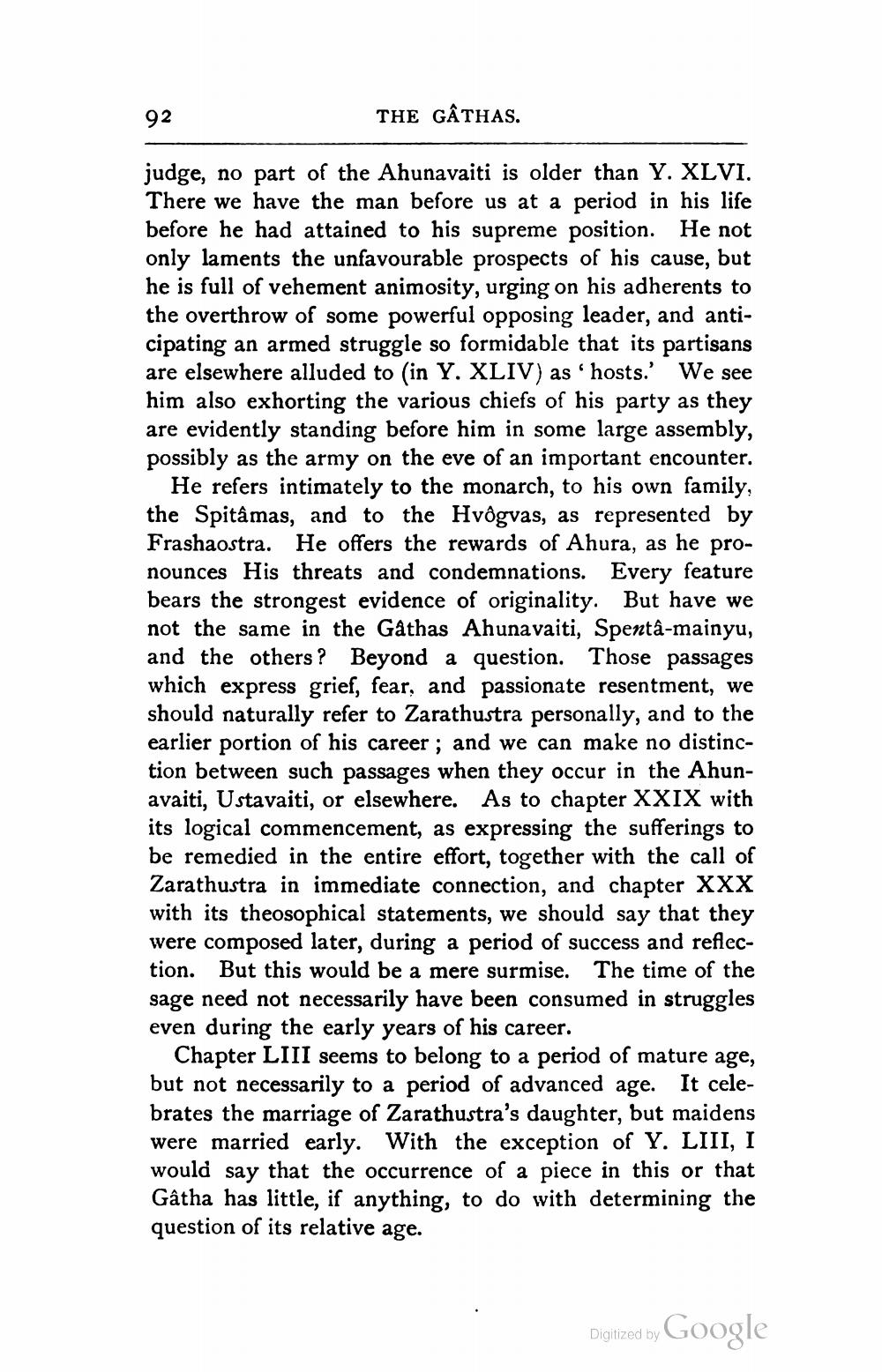________________
92
THE GÂTHAS.
judge, no part of the Ahunavaiti is older than Y. XLVI. There we have the man before us at a period in his life before he had attained to his supreme position. He not only laments the unfavourable prospects of his cause, but he is full of vehement animosity, urging on his adherents to the overthrow of some powerful opposing leader, and anticipating an armed struggle so formidable that its partisans are elsewhere alluded to (in Y. XLIV) as 'hosts.' We see him also exhorting the various chiefs of his party as they are evidently standing before him in some large assembly, possibly as the army on the eve of an important encounter.
He refers intimately to the monarch, to his own family, the Spitâmas, and to the Hvôgvas, as represented by Frashaostra. He offers the rewards of Ahura, as he pronounces His threats and condemnations. Every feature bears the strongest evidence of originality. But have we not the same in the Gathas Ahunavaiti, Spentâ-mainyu, and the others? Beyond a question. Those passages which express grief, fear, and passionate resentment, we should naturally refer to Zarathustra personally, and to the earlier portion of his career; and we can make no distinction between such passages when they occur in the Ahunavaiti, Ustavaiti, or elsewhere. As to chapter XXIX with its logical commencement, as expressing the sufferings to be remedied in the entire effort, together with the call of Zarathustra in immediate connection, and chapter XXX with its theosophical statements, we should say that they were composed later, during a period of success and reflection. But this would be a mere surmise. The time of the sage need not necessarily have been consumed in struggles even during the early years of his career.
Chapter LIII seems to belong to a period of mature age, but not necessarily to a period of advanced age. It celebrates the marriage of Zarathustra's daughter, but maidens were married early. With the exception of Y. LIII, I would say that the occurrence of a piece in this or that Gâtha has little, if anything, to do with determining the question of its relative age.
Digitized by
Digitized by Google




